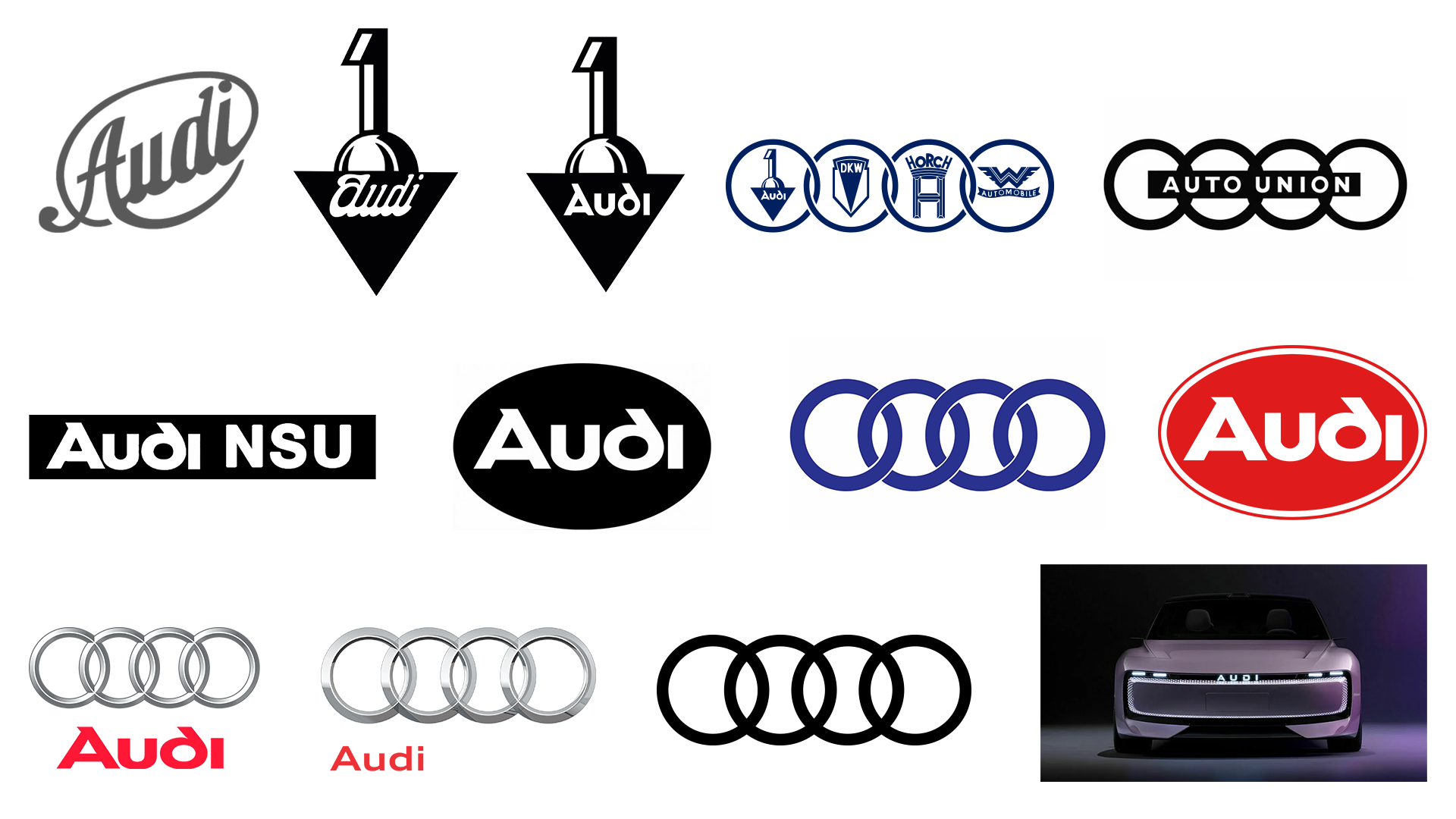Big question: how much do you value a formal web design education?
With an increase in tuition fees and more choice in web design degrees, deciding on a course can be tricky, but do you even need a formal qualification to be successful? We ask our panel of experts to tell us about their experience and thoughts...

Shane McCartney
shanemccartney.com
Do I think art schools are a good thing? YES. I often wish I had formal education in design with training in colour theory and typography. Do I think they are 100 per cent necessary? NO. It’s important to remember that even art schools produce bad designers. Part of me wishes I had a degree or formal education in design, but I also feel that not knowing some things has helped me be more open to self-growth, experimentation and just having a diverse skill set.
Half of my friends have a design education and the other half are self-taught like myself. Some people need the structure and guidance of a formal education. Others are do-it-yourself types, who need to move at their own speed and figure things out through trial and error. Neither way is perfect. In the end, all that matters is whether your work is any good or not. Ultimately, success and beautiful work depends upon the individual and how hard you’re willing to work in or out of school, to learn the skills they need to survive.
Shane is a commercial Flash developer

Dan Rubin
webgraph.com
There are two issues raised by this question: 1); is a formal education required to excel in this industry?, and 2); is it even possible to get a formal education that will adequately prepare someone for the requirements of today's web?
The answer to question one is easy: no. There are far too many examples of self-taught designers, developers and thinkers leading the industry already to think that a formal education is required. Might that change one day? I hope not. The open nature of the web — that element which allows anyone to create and publish — is what makes it so strong.
Get the Creative Bloq Newsletter
Daily design news, reviews, how-tos and more, as picked by the editors.
The answer to number two is also easy, but more involved: not right now. The current courses available in most, if not all, universities are behind the times at best and the teaching outdated, or downright incorrect.
The WaSP InterACT team and Opera's Web Standards Curriculum are programmes aiming at correcting these major issues, by creating open course structures available to anyone, anywhere. These courses are created by teachers and experts who are practitioners in today's web and are structured to stay up to date. They focus on teaching concepts rather than tools, from visual design basics to information architecture, to working with clients and all the practical bits in between.
The low barrier to entry is what allows us to dive into the web because we're passionate about it, without waiting a few years for someone to tell us we're good enough to start learning and creating. I hope we never lose it.
Dan is founder of WebGraph

Dan Mall
danielmall.com
In general, I'm a big advocate for any kind of education. Reading trade magazines and books, attending conferences, and doing tutorials are just a few ways you can educate yourself and hone your craft.
Finding good mentors is one of the best ways that I've found to succeed in this field. Learning from others' knowledge and experience is priceless. That's the tremendous value of a formal web design education: there's a greater chance that you'll have direct access to more smart and experienced people to mentor you, whether they’re your peers or your teachers. I wouldn't be where I am today without the mentorship of John Langdon and Jervis Thompson, former teachers and current friends whose wisdom I practice daily.
If you value formal education but not formal web design education, it's likely a result of the outdated state of education in our industry. But we can change that. Program directors are looking tirelessly for passionate teachers with modern applicable skills. Go talk to the directors of your local colleges' or universities' design, multimedia or programming departments, or get involved with programs like WaSP InterACT or the Opera Web Standards Curriculum. Web design education could be a force to be reckoned with, but it takes a few passionate souls to lead the charge.

Elliot Jay Stocks
elliotjaystocks.com
This is a difficult question to answer for those of us working on the web right now, because the medium itself is so young that the majority of us picked it up by teaching ourselves, or learning on the job. In fact, realistically, it's probably only designers and developers under the age of about 25 who’ve had that.
I know there's some great work being done these days by institutions that really get the web — Christopher Murphy and Nicklas Persson at the University of Ulster spring to mind — and that's great because there really is a need for web design to feature in academic education. It's crazy that these courses didn't even exist when I started university in 2001.
However, a web design student won't necessarily do better than someone without such formal learning. It's passion and determination that will lead to a success, and a formal education is something that can augment that.
Elliot is a designer and illustrator

Dan Frost
brightcloud.net
Experience matters more than anything, but those with no formal training (I'm talking degree-level rather than short courses) often end up learning the same things on the job. In my experience, this puts them behind for a little while in things like communication and the ‘soft’ skills, but their technical knowledge is often on a par.
Technology changes so quickly in web development that a degree 10 years ago can seem irrelevant. Day-to-day it probably will be, but sometimes there are nuggets that come through; the intellectual property course at uni, or the extra sessions on copywriting (which I attended). In the end, qualifications are just another form of experience. The more experience, the better, no matter what kind.
Dan Frost is a technical director of BrightCloud

Jonathan Smiley
zurb.com
Not a great deal. There are plenty of best practices you could learn, but the only way to really know is to design it yourself, code it yourself and test it yourself. Learn by talking to other web designers and picking apart their code and their data. The web is evolving so fast I can't imagine trying to teach a course I expected to be relevant for graduates in two or three years. I actually went to school for (more or less) web design, but I didn't really learn until I was doing it every day.
Jonathan is a design lead at ZURB

Trent Walton
paravelinc.com
Most of the university-level web design and development education I’ve been exposed to has been closely tied to using tools like Dreamweaver or Flash and years behind convention. Design or advertising tracks I’ve had second-hand exposure to don’t seem to address accessibility or practical development around web standards either.
Web designers, for the most part, seem to learn what they know by reading blogs, sharing resources and lots of trial and error. Because the industry is redefined every year – from tables to CSS layouts, web safe to web fonts, fixed-width to responsive/adaptive, flash to HTML5 canvas, etc – we need to be working together to define what learning about the web in a classroom setting should look like.
Teachers need to also be doers, getting their hands dirty with technologies and techniques before they’re commonplace. After all, the most valuable thing a web professional can posses is the desire to learn what’s next.
Trent is founder of Paravel

Mark Kirby
mark-kirby.co.uk
A formal web design education could be useful, depending on how up-to-date the content is – courses teaching outdated techniques can do more harm than good. An alternative could be learning through practical experience, using each project as an opportunity to learn something new. A self-motivated education can be gained online and from books, although it takes dedication to keep pushing yourself to learn and use new techniques. Of course, after a formal education is over everyone must continue to learn in this way anyway, but a good formal education can give a solid base to build on.
Mark develops mobile sites and apps for Ribot

Inayaili de Lon
canonical.com
I think we can only assess the value of a formal web design education by analysing each specific course. If the formal education teaches a student how to continuously learn, analyse, research, while providing foundations for basic design and programming concepts that the student can build upon, and most importantly, prepares the student for survival in a competitive world, then it’s valuable.
If the formal education simply focuses on teaching the student how to work with specific tools and how to follow specific guidelines, it isn’t as valuable. In web design, what is true and considered best practice today, can be identified as obsolete next week, so the capacity of learning for oneself is indispensable.
Inayaili is a web designer at Canonical

Nathan Smith
sonspring.com
Knowledgeable designers, however they acquired that knowledge, are valuable. Having a design education is important, formally obtained or otherwise. I would encourage anyone considering pursuing web design as a career to be immersed in design, beyond one particular medium.
Big-D design is important. Those who holistically study timeless principles of ratio, colour, typography – while also pushing themselves to learn the code to make it happen – are significantly more valuable than those who learn only one or the other. If you are purely a visual designer, or only write code, there is room to grow.
On a side note, I’m currently in the process of applying to a design/tech-related PhD program in my local area, to fill in my own knowledge gaps (my bachelor's and master's degrees are in unrelated fields of study).
Nathan created the 960 Grid System

Chip Hayner
centresource.com
Like most other art mediums, web design relies on a basis of core design skill and technique that are often learned through formal art education. However, what makes a web designer a true master of their craft is exposure to other great web design combined with a commitment to continually grow their experience through practice, replication and trying new things until something sticks.
Chip is a consultant, developer and designer, specialising in PHP development

Matt Gifford
fuzzyorange.co.uk
An official form of education would be superb to teach the next generation of creative professionals, but nothing can ever beat exposure, experience and on-the-job training. Learn as you go, and keep the knowledge fresh and current. You can't learn everything from a textbook.
Matt is lead developer at Fuzzy Orange

Andy Budd
clearleft.com
I think design education is very important, but sadly the quality of web design education is stuck in the 90s and is failing students on almost every level. Rather than teaching the fundamentals of layout, typography and colour theory, most web design degrees focus on technology and tools. Rather than understanding the tenants of human computer interaction and the nature of the web, we see out-of-date lecturers teaching techniques which have been discredited by the industry years ago.
There are some great lecturers, like the Web Standardistas, who manage to keep current and teach the latest techniques. However people like this are few and far between. Instead it's not uncommon to find lecturers from traditional computer science backgrounds co-opted into teaching web related courses they have little or no practical experience in because; "Hey, they get computers and how hard can CSS really be?"
I regularly talk to students who are frustrated with universities teaching them techniques they know are wrong. This in turn produces graduates who’ve spent tens of thousands of pounds, and are saddled with years of debt, with neither the practical skills needed to land a job, nor the conceptual skills to move forward on their own.
In a time when agencies are crying out for quality graduates I'm embarrassed to say that the UK education system is failing industry and, more importantly, failing the students they are supposed to serve.
Andy is managing director of Clearleft

Aral Balkan
aralbalkan.com
I'd love to know what a formal web design education is. Having spent far too much time in higher education and seen too many communication faculties with ‘web degrees’ bolted onto their traditional offerings, I approach anyone with a degree in web design with a healthy dose of scepticism. First and foremost, I value what you've done, not what you studied. Show me the last site you built, the last app you wrote, not a diploma.
That said, if you had an MFA in Interaction Design from the School of Visual Arts, for example, I would take notice. Web design falls under interaction design. I'm not affiliated with them in any way. Just think they have a unique, kick-ass degree. I'd hire an interaction/user experience designer who makes websites any day over a ‘web designer’ (whatever that means).
Aral is a designer, developer, professional speaker, teacher and author of the Feathers iPhone app

Whitney Hess
whitneyhess.com
I value education of all kinds, not just in subjects directly related to web design. The combination of backgrounds, perspectives, approaches and value systems is what makes our community so great and enables us to create platforms that can change the world.
While I have extensive formal education in computer science, professional writing, psychology and human-computer interaction, the experience I've gained in just doing the work day-in and day-out has made me who I am. Still, I am grateful for the time I had to explore without constraints, without fear and without consequence. My education is the foundation of my practice and it would have taken me a lot longer to get where I am without it.
Whitney is an independent user experience designer

Chris Coyier
chriscoyier.net
I don't know what a web design education is like first hand and I imagine that's true of most folks in the industry who are my age (30) or older. I have a Bachelor of Arts, focusing on ceramics and graphic design. I feel I learnt a good amount of artistic fundamentals and heightened my level of taste. With that, and an appetite to learn, you can get into web design and be as good you want.
I’ve had the opportunity to consult on new degrees and new courses at colleges who are beginning to offer web-specific programs. Given my art background and how much I value that, my feedback has always been that while these new programs are amazing and progressive and surely will bring about a new age of kick-ass web kids, don't forget about the fundamental courses that transcend any specific technology.
Chris is a web designer working at Wufoo

Aaron Gustafson
easy-designs.net
I think offering formal education for Web Professionals is absolutely where we need to be. But I don’t currently place much emphasis on it when looking for new team members, because the vast majority of programs don’t teach the skills we require.
Sadly, we’ve found programs that’ve introduced graduates to core web standard competencies, like HTML and CSS, often haven’t coupled the hows of building web pages with the whys that are fundamental to making smarter design and code decisions.
We find ourselves having to spend a lot of time retraining web folks when they join our team and I don’t see that changing any time soon. For that reason, the most important attribute we look for in a new hire is a thirst for as much knowledge as we can throw at them.
Enthusiasm is far more important than a formal web education to me at this point. I don’t necessarily see that changing because enthusiasm is so important, but I’m hopeful that a degree in the web sciences will eventually become as indicative of overall competency as a architectural or law degree.
Aaron is principal at Easy! Designs

Chris Mills
dev.opera.com
I don't put much value on most current formal web design education, as most courses are out of date and don't teach best practices. They are also inconsistent. Therefore graduates often don't leave their courses with the skills they need to get a job in the industry.
I think a consistent standard for formal web design education would be good. It would make career paths and hiring new web guys a lot easier, as it would be easier to prove their skills and verify that they have what you need. It would also drive up the standard of code out there on the Web.
This is why myself and others have spent a lot of our time trying to influence government, universities, etc, to implement consistent web education standards, starting with publishing material such as the Opera web standards curriculum and WaSP InterACT.
Chris educates on open standards for Opera

Thank you for reading 5 articles this month* Join now for unlimited access
Enjoy your first month for just £1 / $1 / €1
*Read 5 free articles per month without a subscription

Join now for unlimited access
Try first month for just £1 / $1 / €1

The Creative Bloq team is made up of a group of art and design enthusiasts, and has changed and evolved since Creative Bloq began back in 2012. The current website team consists of eight full-time members of staff: Editor Georgia Coggan, Deputy Editor Rosie Hilder, Ecommerce Editor Beren Neale, Senior News Editor Daniel Piper, Editor, Digital Art and 3D Ian Dean, Tech Reviews Editor Erlingur Einarsson, Ecommerce Writer Beth Nicholls and Staff Writer Natalie Fear, as well as a roster of freelancers from around the world. The ImagineFX magazine team also pitch in, ensuring that content from leading digital art publication ImagineFX is represented on Creative Bloq.
